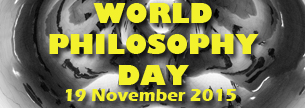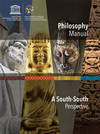There can be no UNESCO without philosophy

© UNESCO / Sandro Chia
UNESCO has always been closely linked to philosophy, not speculative or normative philosophy, but critical questioning which enables it to give meaning to life and action in the international context.
UNESCO was born from a questioning process on the possibility of and necessary conditions for the establishment of long-term peace and security in the world. It is therefore an institutional response to a philosophical question, one that had already been asked by the Abbé de Saint-Pierre and Emmanuel Kant.
And, one could also declare that it is a philosophical institution, since it intends to contribute to maintaining peace and security by heightening collaboration between nations through education, science and culture in order to ensure the universal respect of justice, of the law, of human rights and fundamental liberties for all, regardless of race, gender, language or religion, that is recognized for all people in the Charter of the United Nations. This end goal involves the recognition and implementation of a certain philosophy of law, of human rights and of universal history through means that are also philosophical.
But it is better to say that UNESCO does not have a philosophy in the literal sense of the word since it wants to be a privileged place for exchange and dialogue on the pluralism of experiences of thought and of world cultures.
One could then state instead that UNESCO is a philosophy. And it is possible to tell the story of this philosophy.
Indeed, UNESCO has always used the memory of its traditions to reinvent its present and remains loyal to its Constitution.
Patrice Vermeren gives one of the possible interpretations of this tradition through his description of the philosophy used by UNESCO in his book La philosophie saisie par l’UNESCO.
It deserves credit for strengthening our commitment to revitalizing this tradition and to contributing, by all possible means, to popularize an international philosophical culture.
On this path, the “philosophical detour” – expression borrowed from Jeanne Hersch in her famous study on human rights from a philosophical point of view, undertaken at the request of UNESCO – is called for every day, and today more than ever.
News
Publication
Philosophy manual: a South-South perspective
ISBN 978-92-3-101006-4


